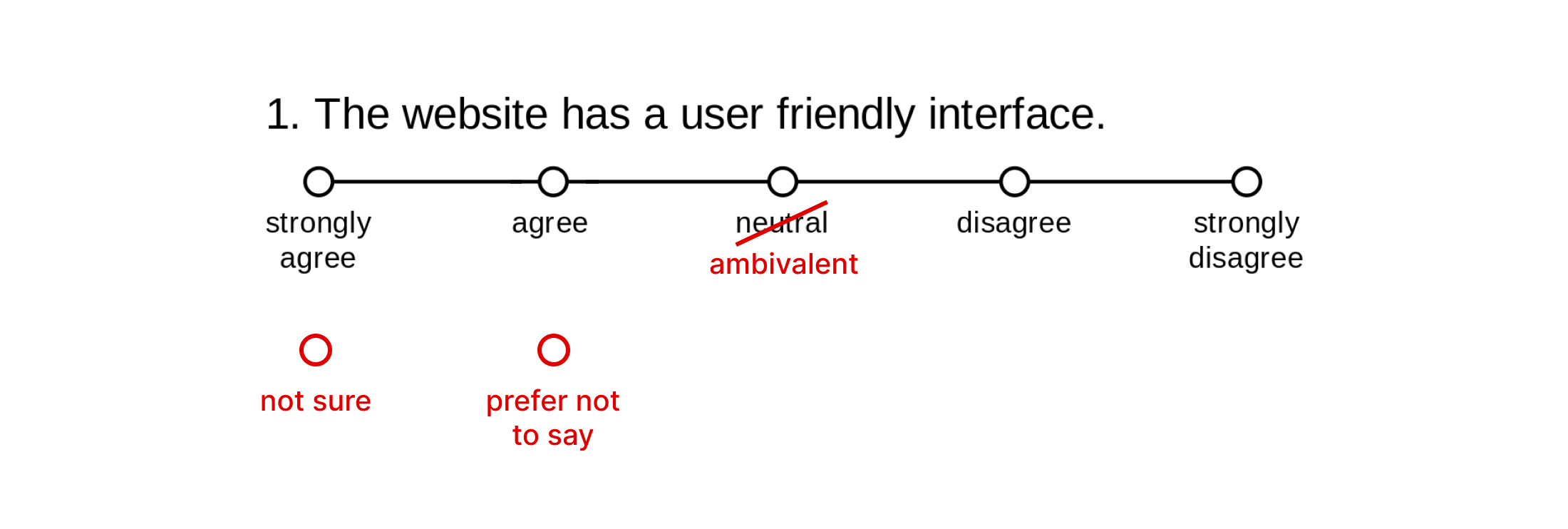'Neutral' doesn't belong in surveys
In the world of human-centered design, we often find ourselves building surveys to learn about how people are using the things we build. Despite not being quite as helpful as interviews, surveys can be helpful in a pinch or on a low budget – but they need to be crafted with care to avoid bias.
One question type that’s used is the Likert scale. A Likert scale usually has a statement or a question, and the answers typically scale from one end to the other, with the same number of positive and negative responses to choose from.

With these scales, there can be a middle ground known as neutral. There’s some research
Some people
- Neither agree nor disagree
- Not sure
- Prefer not to respond
While these seem to give recourse, I don’t think these options are helpful when used to replace neutral. They’re not particularly good midpoints for a scale, and they’re typically only used one at a time. Each is more specific than neutral, but the specificity means we lose out on nuance.
My take is two-fold: first, I think that a midpoint for this scale is important, but “neutral” is the wrong word. It allows for an easy out, and participants might feel they’re taking a stance without really taking one. I suggest using the word ambivalent, which is far more active, nuanced, and precise when it comes to a midpoint between agreement and disagreement. Ambivalence is a stance, and allows the participant to communicate some level of complexity behind their lack of ability to lean one way or another.
That’s not enough, though. To cover all the flavors of non-agree/disagreement, I think Likert scales need to include “Not sure” and “Prefer not to respond” as a separate set of options in addition to the scale itself. This allows us to cover all of our bases, and doesn’t box the participant into a scale they may not belong on. Something like this:

Thanks for coming to my TED talk. I wrote this during a lunch break that feels like a fever dream immediately after a survey drafting meeting, so tell me if I’ve missed something.